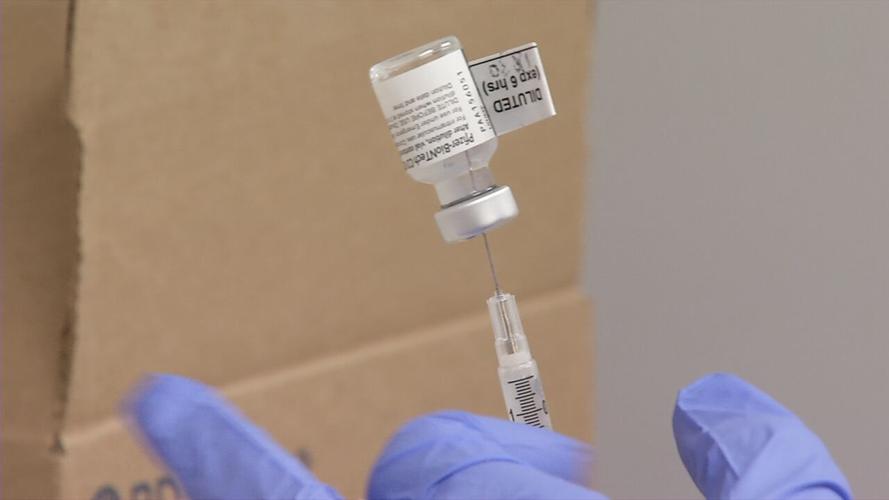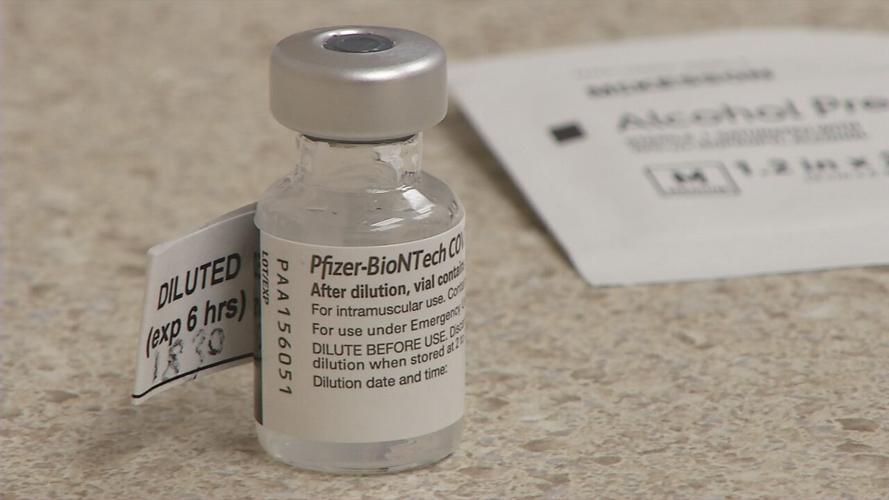LOUISVILLE, Ky. (WDRB) -- Monday was a big day in Kentuckiana. A day after Pfizer's COVID-19 vaccine arrived in Louisville, it was administered on both sides of the river.
The arrival of the vaccine has led to a lot of questions, so WDRB News sat down with Dr. Joseph Flynn, chief administrative officer for Norton Medical Group and physician-in-chief of Norton Cancer Institute at Norton Healthcare, to get some answers.
"It's one of the most exciting moments we could have ever hoped for," Flynn said. "When you think back to March, when we were first hearing the term COVID-19, to now, it has been a long, drawn-out process. People have done really miraculous things."
Like many, Flynn is excited about the arrival of the vaccine. "To me, this is really one of those moments in time where we really have some hope to change the direction of this and really go back to where we were before all of this. A year ago," he said.
The first round of Pfizer vaccines were used Monday to vaccinate frontline health care workers. Over the next several weeks, thousands of people across the region are expected to be vaccinated.
But, that doesn't mean the country can ease up on the CDC's recommendations in place such as mask wearing and social distancing. Flynn said the Pfizer vaccine comes in two doses and the first shot will only provide partial coverage.
"So, right there, you know that not everyone is going to have to same effectiveness as the 95%, which is what we see after the second dose," Flynn explained. "And then if you think about the virus, just because you are immune to the virus, you can still get exposed to it. And then your body is going to build an immunity to it and wipe it out. In that time, you could actually spread it to others. So, yes, we still need to wear the masks, (practice) good hand hygiene, because there are other viruses out there that you could be exposed to as well."
Flynn also explained how and why you can still get the virus, even after being vaccinated. "What happens is, you have antibodies circulating in you for any virus that you get vaccinations for. When you get the vaccine, it allows you to mount a response and kill the virus fairly quickly, but you still have the potential for exposing others," he said.
One of the biggest questions being asked is: when could things get back to normal?
"That's probably the most unknown question that we can face," Flynn said, pointing out that there are other vaccines coming soon and that it's not a quick fix. Flynn said it could be April or May before the majority of the population is vaccinated, stressing that it's important for everyone to get vaccinated.
"The longer we prolong that, the more difficult it's going to be to get back to normal," he said. "Because we have to hit that critical mass, that herd immunity point that you've heard about, where we are getting the maximum number of people who have antibodies to the virus."
Flynn said herd immunity is crucial when it comes to eliminating the coronavirus.
"Really important that everybody hearing us today, when your time is here and you're able to get vaccinated, you consider the risks and benefits, but we've done that in great debt and the benefits far outweigh the risks, at least through the data that we have available now," he said.
For those who are reluctant to take the vaccine because of how quickly it was developed or other concerns, Flynn said it's natural to have questions, but he also says the vaccine has been vetted.
"There's no one more skeptical than health care workers. We're very skeptical. We want to use data to drive our decisions; that's very important for me," he said. "Not only with this virus but in my day-to-day life. So, I look at the data with great scrutiny and to make sure it passes muster."
But Flynn said that's not the only reason the vaccine should be trusted. "If you look at how this has gone through, we've gone through the normal processes we would with phase one, phase two and then phase three, where tens of thousands of people have been treated with the vaccine," he said. "And the FDA has had an external review panel to look at the data to make sure it passes muster, is safe and effective. If you look at the data that has been done, it's quite an extensive process.
"From everything I have read and seen, I think we are in a great position. It's miraculous we are where we are today. I hope that people really step back and think about what the data shows, the risks are really minimal. They are similar to other vaccines we get. If you get the opportunity to get vaccinated, please take the vaccine."
Another big question is whether there's anyone who should not get the vaccine.
"Right now, it looks like those who have severe allergic reactions probably should be cautious, as we've heard from some earlier experiences," Flynn said. "But those people, with the use of Epinephrine, have not had bad outcomes."
Flynn said there's no long-term data on how long the vaccine will last.
Related Stories:
- 5 frontline health care workers receive first COVID-19 vaccinations in Kentucky
- Clark Memorial Hospital administers first COVID-19 vaccines to frontline health care workers
Copyright 2020 WDRB Media. All Rights Reserved.















